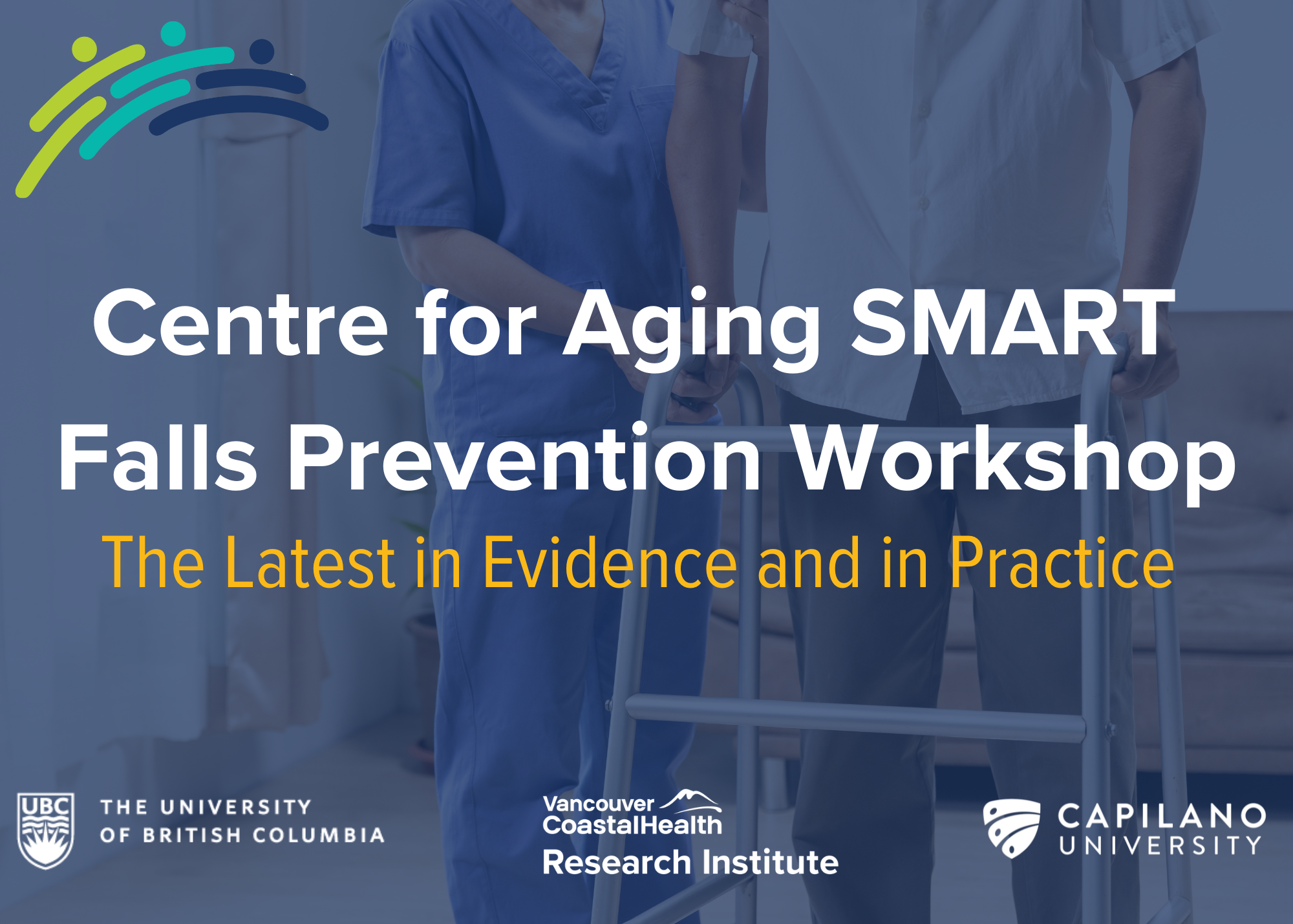Workshop Day 1: 1 pm to 4 pm PST, in-person event.
Session 1: Global Guidelines for Falls Prevention and Management: Putting into Practice
Presented by Dr Ken Madden, MD, MSc, FRCPC
Session Description: Falls are a major health concern for older adults worldwide. In fact, falls are the second leading cause of unintentional injury-related deaths, making them a serious public health issue. However, falls are preventable, and evidence-based guidelines have been developed to reduce the incidence of falls in older adults. In this session, we will discuss the most recent global falls guidelines and applying them in clinical practice.
Learning Objectives:
- Participants will understand how to assess for risk factors for falls in older adults, including medical conditions, medications, and environmental factors
- Participants will learn about evidence-based global falls guidelines and identify key components of falls prevention strategies, such as exercise, medication review, and home modifications
- Participants will be able to develop an evidence-based approach to falls prevention in clinical practice, including strategies for assessing risk and implementing interventions
Session 2: Falls Risk Screening: Essential Tools
Presented by Dr Teresa Liu-Ambrose, PhD, PT
Session Description: Over 130 intrinsic risk factors have been identified so how does one approach falls risk screening, especially within the context of limited resources, space, and time? This session is tailored for allied health professionals working with older adults who may be at risk for falls.
Learning Objectives:
- Participants will learn how to use evidence-based screening tools that can be implemented in most settings to assess the risk of falling
- Participants will be able to interpret the results of falls risk screening assessments and determine appropriate interventions based on the patient's risk level
Session 3: Evidence-Based Falls Prevention Strategies
Presented by Dr Jennifer Davis, PhD
Session Description: Falls can be prevented, even among those who have previously fallen. This session will provide an overview of evidence-based falls prevention strategies, including exercise, medication review, home modifications, vision assessment, and other interventions.
Learning Objectives:
- Participants will be able to identify evidence-based interventions for falls prevention (i.e., environmental modifications, exercise) and for whom
Session 4: Exercise to Prevent Falls: What are the Key Ingredients?
Presented by Tracy Dignum, PT, M.Ed.
Session Description: The Otago Exercise Program (OEP) is an evidence-based approach for primary and secondary falls prevention in community dwelling older adults. The OEP is an individualized and progressive strength, balance, and walking program. In this presentation we will outline program delivery and highlight key characteristics of the OEP that contributes to its effectiveness in reducing falls.
Learning Objectives:
- Participants will be able to describe the OEP delivery model for community dwelling older adults, including the strength, balance, and walking components; visit schedule of the physical therapist; and clinical documentation
- Participants will learn how to individualize the OEP exercises based on assessment findings and the home environment
- Participants will be able to describe the progressive nature of the OEP exercises and learn how to appropriately challenge and motivate participants over time
- Participants will be able to identify the key characteristics of the OEP that contributes to its effectiveness in reducing falls








